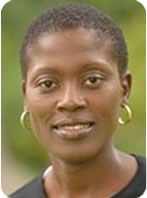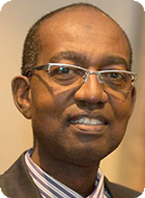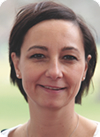November 24 - 28, 2025
Adelaide, Australia
Dec 11-13, 2025
Hong Kong, China
ISCB Official Event
December 6 - 8, 2025
Northeastern University, USA
Jan 3 - 7, 2026
Big Island, Hawai'i
April 21-22, 2026
Cambridge, UK
May 26 - 29, 2026
Thessaloniki, Greece
May 27-29, 2026
Toronto, Ontario, Canada
ISCB Official Event
July 12 - 16, 2026
Washington, D.C., United States
ISCB Flagship Event
August 1 - September 9, 2026
Geneva, Switzerland
ISCB’s Annual Flagship Meeting
Support the society while achieving your marketing goals
Become a ISCB collaborative conference, learn more here
Regional, topical, worldwide - your platform to present science
dedicated to facilitating development for students and young researchers
The ISCB Affiliates program is designed to forge links between ISCB and regional non-profit membership groups, centers, institutes and networks that involve researchers from various institutions and/or organizations within a defined geographic region involved in the advancement of bioinformatics. Such groups have regular meetings either in person or online, and an organizing body in the form of a board of directors or steering committee. If you are interested in affiliating your regional membership group, center, institute or network with ISCB, please review these guidelines (.pdf) and send your exploratory questions to Diane E. Kovats, ISCB Chief Executive Officer (This email address is being protected from spambots. You need JavaScript enabled to view it.). For information about the Affilliates Committee click here.
Topically-focused collaborative communities
Connect with ISCB worldwide
Environmental Sustainability Effort
ISCB is committed to creating a safe, inclusive, and equal environment for everyone
Resource library for education and training materials
Search jobs, find talent
Science at the click of the mouse, recorded talks
High-quality research devoted to computer-assisted analysis of biological data
Latest research and publications
Certifying Quality in Computational Biology Education
Latest updates from ISCB
Highlighting Society events, programs, and achievements
Celebrating scientific achievement and innovation
Honoring our distinguished researchers
Recognizing contributions and achievements
Center for science, collaboration, and training
ISCB-Africa ASBCB Bioinformatics Conference welcomes original research and previously published research submissions for oral presentation consideration.
Abstract submissions are intended to convey a scientific result that is original work/previously published work, and are not advertisements for commercial software packages. Abstracts may cover any area of computational biology, but preferably within one of the topic areas listed below:
• Bioinformatics of human genetics and population studies
• Host/pathogen interactions and dynamics of infectious diseases
• Microbiome studies
• Systems biology
• Tools, Pipelines, databases and resource development
• Molecular epidemiology and evolution
• Pharmacogenomics, vaccines and drugs design
• Functional, structural, and comparative genomics
| Original Research Submission Guidelines |
All abstracts must be a maximum of 250 words (to appear in the conference booklet) and should provide at the least the following information within them: background information, approach/methods, results and conclusions (actual headings within the abstract are not necessary). Authors may submit an additional paragraph of up to 250 words stating the relevance of the work for the purpose of convincing reviewers of the scientific content/validity; these additional 250 words will not be published and are for reviewing purposes only.
Original Paper Submissions for Oral Presentation Deadline is 31 July 2017.
| Previously Published Research Submission Guidelines |
Abstract submissions must be a maximum of 250 words (to appear in the conference booklet) and should provide an explanation of how the work of the submitted paper(s) is impacting the field. Submission must highlight work that has been published between June 2016 - July 2017.
Scientific Program Committee will also consider research that have been previously presented (within the timeframe of June 2016 - July 2017). Research must contain new significant finds. Author is to provide the conference name, program listing (if available) and conference URL. This information should be entered in the publication information field during the submission process.
Submissions should include the following:
• For each presenter only one previously published research submission will be reviewed (the LAST will be taken by default). The same limitation applies for the last author (group). Publications can be grouped if it becomes clear how different publications will be combined in a talk. The maximal number of submissions per author/co-author is 5.
• Name/affiliation/email of submitter (assumed to be the presenter; note that the presenter cannot be changed because the identity and ability to present of that person will be an essential selection criterion).
• Names/affiliations/email of ALL coauthors (note: any name appearing on a published paper has to be added here). Note that all co-authors have to agree to the submission. It is the responsibility of the submitter to guarantee that all co-author email addresses are correct (email notifications of the submission will be sent to all co-authors).
• 250-word limited abstract-like argument that explains the impact and importance of this work.
• Sources of original publication(s) (Year, Journal, Vol., pages).
• PDF with paper(s) (note: in case of the submission of 2 papers, both should be merged into one single PDF; all reviews will be based on the content of this PDF).
• Only PDF submissions are acceptable. The submission system is currently unable to handle ASCII, Word, LaTeX, or anything other than standard PDF. It is the responsibility of the submitter to verify that the PDF is completely viewable/printable by all major operating systems (LINUX, MacOS, Windows).
Previously Published Research Submission Deadline is 31 July 2017.
 |
JULIE MAKANI, PhD Associate Professor, Principal Investigator, Sickle Cell Programme Department of Hematology and Blood Transfusion Muhimbili University, Tanzania How is Bioinformatics Influencing Health and Research in Africa? Experience from Sickle Cell Disease in Tanzania > Click here for biography < |
 |
DANIEL MASIGA, PhD Theme Leader, Animal Health International Centre of Insect Physiology and Ecology (ICIPE) Nairobi, Kenya Towards elimination of Neglected Tropical Diseases (NTDs): Leaving genomics behind? I am a vector/parasite biologist with research and development interests in infectious diseases of humans and animals in Africa. I am head of the H3AbioNet node at the International Centre of Insect Physiology and Ecology, icipe, where I am a Principal Research Scientist and head of the Animal Health Theme. I will discuss Neglected Tropical Diseases within the context of disease elimination in the genomics era. > Click here for biography < |
 |
B.F. FRANCIS OUELLETTE, PhD CSO, VP Scientific Affairs Génome Québec Open Data is Essential for Genomics > Click here for biography < |
 |
NICOLE SORANZO, PhD Group Leader Human Genetics WellcomeTrust Sanger Institute (WTSI) Professor of Human Genetics University of Cambridge United Kingdom Genetic and Epigenetic Scans of Complex Human Traits > Click here for biography < |
| BIOGRAPHIES | |
| JULIE MAKANI, PhD Julie Makani is Associate Professor at Muhimbili University of Health and Allied Sciences (MUHAS), www.muhas.ac.tz in Tanzania. Tanzania has established one of the largest single-center, sickle cell disease (SCD) research programs in the world integrates healthcare, advocacy and education. Julie trained in Medicine (Tanzania) and Internal Medicine (UK), and completed her PhD in clinical epidemiology of SCD. She received the 2011 Royal Society Pfizer Award for work in using anaemia in SCD as a model of translating genetic research into health benefit www.youtube.com/watch?v=sd17odE1YLs. She is a Fellow of Royal College of Physicians of United Kingdom and Tanzania Academy of Sciences. www.globalsicklecelldisease.org/OurLeaders/juliemakani/index.aspx - top - |
|
| DANIEL MASIGA, PhD Dan Masiga’s research focus is on tropical infectious diseases, which began with African trypanosomes, the subject of his doctoral studies, but extended to malaria and NTDs. He has led projects in these fields, and aims to use generic subjects such as genomics and bioinformatics to advance new knowledge, and develop tools that reduce the impact of tropical diseases. He sees his biggest contribution to science being to mentor young African scientists in the life sciences, and enabling them to take leadership roles in shaping the role of S&T in Africa's development. He is a previous president of ASBCB, and leader of the H3ABioNET node at the International Centre of Insect Physiology and Ecology. www.icipe.org/about/staff/daniel-masiga |
|
| - top - B.F. FRANCIS OUELLETTE, PhD B.F. Francis Ouellette has recently (February 2017) started a new position as the Chief Scientific Officer and Vice President of Scientific affairs at Génome Québec, a not-for-profit organization that supports Genomics in Québec. Before that, Francis was the associate director of the Informatics and Biocomputing platform and a senior scientist at the Ontario Institute for Cancer Research (OICR) in Toronto, Ontario. Before his move to Toronto in 2007, Francis was an Associate Professor in the department of Medical Genetics at UBC, and Director of the UBC Bioinformatics Centre (UBiC) at the Michael Smith Laboratories. Francis was trained at McGill University (undergraduate and graduate studies), as well as the University of Calgary, McGill University and Simon Fraser University (graduate studies). After working on the yeast genome sequencing project at McGill University, he took a position at the NCBI as GenBank coordinator from 1993 to 1998. Francis also still holds a position of Associate Professor in the department of Cell and Systems Biology at the University of Toronto. His work at the OICR involved bioinformatics training, as well as biocuration and management of cancer genomic data. He continues his bioinformatics training work with bioinformatics.ca at Génome Québec. Since his work at the NIH, coordinating the largest Open DNA sequence database in the World (GenBank), Francis has been dedicated to ensuring openness of Science: the data it generates, and the publications that report them. Not only through his work, but on the various advisory boards and editorial boards he serves on: PLOS Computational Biology Education Editor; Associate Editor for DATABASE, an OUP Open Access journal; a number of NIH-funded Open Source and Open Data resource projects: The Saccharomyces Genome Database SAB member, the Galaxy Project SAB member, The GenomeSpace advisory member; the Human Microbiome Project advisory member. Francis is also on the Elixir-Europe SAB as well as a co-chair of the H3ABionet SAB. www.genomequebec.com/en/executive-management.html - top - |
|
NICOLE SORANZO, PhD Prof. Soranzo is a human geneticist working in the field of human complex trait genetics. Her research focuses on the application of large-scale genomic analysis to unravel the spectrum of human genetic variation associated with cardiometabolicand immune diseases, and its interaction with non-genetic and environmental cues. Prof. Soranzograduated in biological sciences at the University of Milano, Italy, with a dissertation on population and evolutionary genetics. She later obtained a PhD in genetics from the University of Dundee, and undertook post-doctoral training in human population and statistical genetics at University College London, conducting applied and methodological work in evolutionary genetics and association studies. In 2005 Prof. Soranzojoined the Pharmacogenomics Department at Johnson & Johnson Pharmaceutical Research and Development (Raritan, USA). In 2007 she joined the WellcomeTrust Sanger Institute, and since 2009 she has led her own team. In 2015 she was additionally appointed as Professor of Human Genetics at the School of Clinical Medicine of the University of Cambridge. Furthermore, Prof. Soranzois a member of the Cambridge University Platelet Biology and Cardiovascular groups, the NIHR Blood and Transplant Research Unit in Donor Health and Genomics and the EU BLUEPRINT and EpiGeneSysprojects. She serves in several steering committees and scientific advisory boards, and is on the editorial board for theEuropean Journal of Human Genetics,Genome Medicine,Trends in Genetics, andMolecular Biology and Evolution. www.sanger.ac.uk/people/directory/soranzo-nicole |
|
| - top - | |
Go directly to: Wednesday/Oct 11 | Thursday/Oct 12 | Friday/Oct 13
*Proposed Programs. Agendas subject to change.
ISCB Conferences
The International Society for Computational Biology, Inc. (ISCB) assumes that most people are intelligent and well-intended, and we're not inclined to tell people what to do. However, we want every ISCB conference to be a safe and productive environment for everyone. Attendees should respect common sense rules for public behavior, personal interaction, common courtesy, and respect for private property.
ISCB doesn’t condone harassment or offensive behavior, at our conference venues or anywhere. It's counter to our organization values. More importantly, it's counter to our values as human beings.
Abusive, racist, sexist, harassing, or threatening behavior towards any other participant or directed at any organizer, student volunteer, ISCB staff, convention center staff, or security will not be tolerated.
We invite you to help us make each ISCB conference a place that is welcoming and respectful to all participants, regardless of race, gender, age, sexual orientation, disability, physical appearance, national origin, ethnicity, or religion. This allows everyone the opportunity to focus on the conference itself, and the great networking and community richness that happens when we get together in person. Please report any incidents in which an attendee of the meeting is abusive, insulting, intimidating, bothersome, or acting in an unsafe or illegal manner to ISCB staff or security immediately.
We expect all participants to follow the Code of Conduct during the conference. This includes conference-related social events at off-site locations, and in related online communities and social media. Participants asked to stop any harassing behavior are expected to comply immediately. Conference participants violating this Code of Conduct may be expelled from the conference without a refund.
Please bring any concerns to the immediate attention of the event staff, or contact our Executive Director, Diane Kovats, at This email address is being protected from spambots. You need JavaScript enabled to view it.. We thank our participants for your help in keeping the event welcoming, respectful, and friendly to all participants.
| Please note the following conference submission deadlines: | |
| Oral Abstract Submission Deadline | July 31, 2017 |
| Oral Abstract Acceptance Notifications | August 25, 2017 |
| Poster Submission Deadline | September 1, 2017 |
| Poster Acceptance Notification | September 7, 2017 |
| REGISTRATION | |
| Registration Opens | August 1, 2017 |
| Online Registration Closes | October 2, 2017 |
| Late Registration begins onsite | October 10, 2017 |
| - top - | |
![]() REGISTER HERE
REGISTER HERE
ASBCB Members must log-in through www.asbcb.org to receive the member rate.
Links within this page:
• Registration Rates
• ISCB Membership
• Registration Instructions
• VISAs
• Cancellation Policy
| REGISTRATION INTRODUCTION |
Before registering please review the details below about the ISCB Africa ASBCB Conference on Bioinformatics and its components.
Please note online registration closes Monday, October 2, 2017. After this date only on-site registration will be available at the conference in Entebbe, Uganda. All early and online registration discounts are expired for on-site registration.
• Early Discounted Registration: August 1 through September 15, 2017
• Regular Registration: September 16 through October 2, 2017
• On-site (Late Registration): October 10 through October 12, 2017
For additional information regarding registration rates please see the chart below.
Conference Registration Fees include:
• Scientific sessions (Tuesday, October 10 through Thursday, October 12)
• Poster sessions (Tuesday, October 10 through Thursday, October 12)
• Refreshment breaks (Tuesday, October 10 through Thursday, October 12)
• Lunch (Wednesday, October 11 through Thursday, October 12)
*Registration for Workshops on Friday is a separate registration fee.
REGISTRATION FEES (all prices are US dollars):
| Applicable Dates: Must be registered by Sept 16, 2017, 11:59 PM |
Member | Non-member |
| Conference Registration |
Conference Registration |
|
| Professional/Corporate: | $250.00 | $300.00 |
| Student/Postdoc* | $150.00 | $175.00 |
| * Advisor letter or student ID my be requested at the registration desk on-site at the conference to verify status. - top - |
||
| REGULAR REGISTRATION | ||
| Applicable Dates: Sept. 16 - Oct. 2, 2017, 11:59 PM |
Member | Non-member |
| Conference Registration |
Conference Registration |
|
| Professional/Corporate: | $275.00 | $325.00 |
| Student/Postdoc* | $175.00 | $200.00 |
| * Advisor letter or student ID my be requested at the registration desk on-site at the conference to verify status. - top - |
||
| LATE/ON-SITE REGISTRATION | ||
| Applicable Dates October 10-12, 2017 |
Member | Non-member |
| Conference Registration |
Conference Registration |
|
| Professional/Corporate: | $300.00 | $350.00 |
| Student/Postdoc* | $200.00 | $225.00 |
| * Advisor letter or student ID my be requested at the registration desk on-site at the conference to verify status. | ||
| Please note online registration closes Monday, October 2, 2017, 11:59PM. After this time registration will only be available onsite at the conference registration desk in Entebbe, Uganda. Venue address coming soon. |
||
| ISCB MEMBERSHIP |
(ISCB Membership Fee Chart available here)
ISCB MEMBERS: If you are a current member of ISCB, you must use the email address associated with your ISCB membership in order to register at the discounted member rates through the online system. If you do not know the email address you used to register with ISCB, please send an email to This email address is being protected from spambots. You need JavaScript enabled to view it. before proceeding with conference registration.
NONMEMBERS OF ISCB: Nonmembers will be able to join ISCB through the online conference registration system and immediately receive member rates for the ISCB Africa ASBCB Conference on Bioinformatics and Workshops. You can either join when you register for the conference or you can join the ISCB here and then immediately register for the conference at the member rates.
ISCB MEMBERSHIP RENEWAL: If your ISCB membership is not current or will expire on or before October 10, 2017 you will be offered an opportunity to renew your membership as part of your registration fees through the online system.
- top -
| REGISTRATION INSTRUCTIONS |
To register via fax or mail, please complete the online registration form and choose the non-credit card payment option. You can then print out a paper invoice and fax it to +1-619-374-2890 or send it to the address below. To pay by credit card please include the invoice along with this credit card authorization form (click here for PDF form) and either fax it or mail it to the address below. (The ISCB accepts American Express, Mastercard, and Visa only.)
To pay by check make your payment payable (US$) to the International Society for Computational Biology and mail it with a copy of your invoice to:
ISCB Africa ASBCB Conference on Bioinformatics 2017 Registration
c/o Belinda Hanson - ISCB
9650 Rockville Pike
Bethesda, MD 02814
- top -
| VISA INVITATION LETTERS |
Invitation letters required for visa applications will be sent with your confirmation after registration and full payment have been received. You must be registered and paid-in-full for the conference in order to receive an invitation letter.
International visitors to Uganda
All international visitors, regardless of country of origin, should visit the Uganda Immigration website for required travel documents.
• Uganda Visa Info: https://visas.immigration.go.ug/
ISCB and the ISCB Africa ASBCB Conference on Bioinformatics organizers assume no responsibility for the accuracy of information on any of the above websites, and encourage you to communicate directly with the Uganda agencies that services your particular needs for entry.
- top -
| CANCELLATION POLICY |
Requests for registration cancellation must be made in writing and sent to This email address is being protected from spambots. You need JavaScript enabled to view it..
All refunds will be made in US dollars and processed following the conference. Refunds will be made in accordance with the following schedule:
• Cancellations received on or before September 20, 2017, will receive a 50% refund.
• No refund of fees will be made after September 20, 2017.
- top -
| Questions about registration |
For questions about your registration please contact us at This email address is being protected from spambots. You need JavaScript enabled to view it..
The conference will take place October 10-12, 2017 with workshops occurring on October 13, 2017 at the Uganda Virus Research Institute (UVRI), Plot No: 51 -59 Nakiwogo Road, Entebbe, Uganda.
Traveling to Uganda
Below are the requirements for entry into Uganda. Further details can be found here: http://gov.ug/content/
Visa fees
Single entry: U$ 50 per individual
Multiple entry visa 6-12 months U$ 100
Note:
Any other exemption as may be specified on arrival
Requirements for extension of visitor’s pass
Fill extension of visitor’s pass form
Attach Covering letter from applicant or host if applicable
Attach immigration status of host (if applicable)
Attach Copy of confirmed return air- ticket
Attach Copy of passport/travel document
Provide Original passport for endorsement of facility
All foreign nationals entering and residing in Uganda must comply with immigration legislation and other national laws of the country during their stay in Uganda.
ISCB Members enjoy discounts on conference registration (up to $150), journal subscriptions, book (25% off), and job center postings (free).
Connecting, Collaborating, Training, the Lifeblood of Science. ISCB, the professional society for computational biology!
Giving never felt so good! Considering donating today.